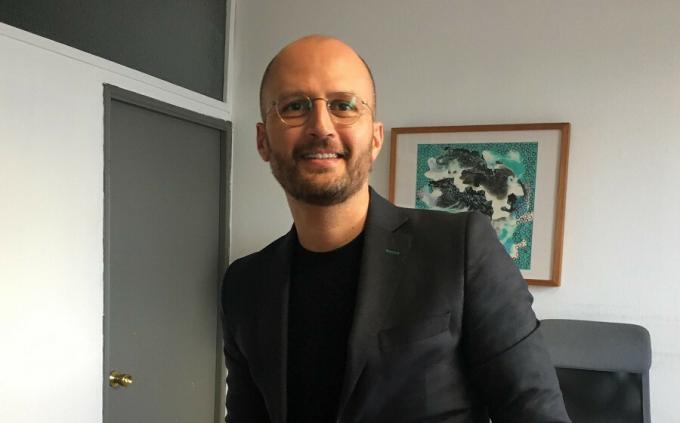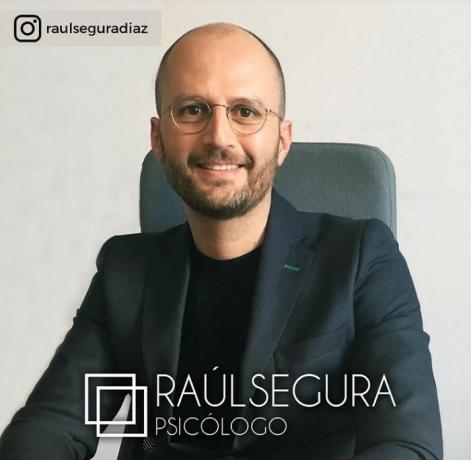Raúl Segura: OCD treatment from Brief Strategic Therapy
Of all the types of psychotherapy, there is one that places great emphasis on the need to focus on the present to obtain results as soon as possible, and enhance the effectiveness of the intervention of the psychologist. Is the case of Brief Strategic Therapy (TBE), developed from the works of Paul Watzlawick and Giorgio Nardone.
TBE creates intervention protocols adapted to each type of harmful psychological alteration so that the person stop feeding the problem unconsciously and start living from healthier habits and away from the disorder. To understand how it works in the treatment of Obsessive-Compulsive Disorder, We talked with a psychologist from the Canary Islands specialized in this type of therapy: Raúl Segura Díaz.
- Related article: "Brief Strategic Therapy: what it is and how it works
Interview with Raúl Segura: helping people with OCD from Brief Strategic Therapy
Raul Segura Diaz He is an official psychologist at the Brief Strategic Therapy Center of Arezzo (directed by Giorgio Nardone himself), and attends his office in Las Palmas de Gran Canaria. On this occasion, this professional tells us about his experience caring for patients with Obsessive-Compulsive Disorder, a psychological disturbance known to be related to the need to perform "ritual" behavior patterns repetitive.
Is it possible for a psychological disorder that has troubled a patient for years to go away in just a few months of therapy?
The fact that a disorder is disabling and that it has affected a person for many years does not mean that the solutions to make it disappear have to be of the same magnitude. If you manage to find the right treatment protocol, most problems are resolved in a few months.
It is true that the most important thing is to unblock the disorder in the first sessions so that the patient stops suffering and then little by little work with appropriate strategies to eliminate it by complete. This is how it is done in the case at hand, in the Obsessive Compulsive Disorder (OCD), which must be completely eliminated, small improvements are not worth it, if it is not completely eliminated then it is reproduced again. We could say that it behaves like a virus.

In the case of Obsessive Compulsive Disorder, is the treatment complicated?
I would say that it is a complex disorder that cannot be solved with ordinary logic. We must understand how it works and apply the appropriate treatment. It is necessary to know how the problem is structured in the patient's mind, to know the type of rituals and if the OCD is based on fear or pleasure. For example, a fear-based OCD would be performing rituals to avoid getting contaminated, and a pleasure-based one would be pulling one's hair, which is called trichotillomania. We must be very clear about what the patient does to reduce her fear or not to give in to pleasure.
Most patients with this disorder engage in rituals or compulsions that calm them down in the moment and gradually become more frequent until they completely disable them. Other strategies used by patients is to avoid what they fear, for example, not to go to places where they can be contaminated, and also to involve the family to help them.
At first it may seem that all this calms the OCD sufferer, but later it becomes part of the problem, progressively the disorder requires more rituals, more attention from family members, more avoidance. We must influence specific protocols, as is done in Brief Strategic Therapy (TBE), to dismantle all this that the patient has built and thus free him from the trap of the disorder.
Being Brief Strategic Therapy your specialty, what would you say are the distinctive aspects of this, and what distinguishes it from the rest of the psychological interventions?
One of the fundamental aspects is that Brief Strategic Therapy is focused on change, not on learning like others. Let me explain: in other therapies, dialogue is held with the patient so that he knows her problem, so that he understands it through reason and that this leads him to act differently.
On the other hand, in Brief Strategic Therapy, the dialogue is focused on the patient perceiving and feeling her problem from another perspective. It is a matter of making him put into practice prescriptions, which at times may seem original, but which are based on efficiency. This helps to overcome the resistance to change that any already structured disorder has.
In TBE we make the patient relate differently to his problem, which makes him have a different perception of it. He begins to realize that he can stop doing certain rituals, thus breaking the rigid structure of the disorder.
In the sessions we use persuasive language that fits the patient and his problem. A communication aimed at him discovering for himself how the disorder works and how what he has done so far to solve it maintains it or even makes it worse. All of this makes TBE one of the most efficient for treating OCD.

How do you begin to notice that the compulsions cease to have their power over the person?
Compulsions cease to dominate the patient's life when he can stop doing them, when carrying them out is no longer inevitable. The patient realizes that more and more often he dominates the situation instead of the disorder. This can be achieved in a short time if with the appropriate stratagems we seize the symptom so that it ceases to be something irrepressible.
The patient observes that he can, for example, stop washing his hands, or that he can stop checking twenty times a document before sending it, or that he can stop reciting the mental formulas that previously imposed the disorder.
Can we all get to structure, suffer from OCD?
If we take into account that OCD is based on reasonable things taken to the extreme, we could say that anyone could suffer from it. Washing your hands is okay to avoid contaminating yourself, but it's not okay to wash them twenty times. It's a good thing taken to the extreme. Being tidy and clean is fine, but if this leads us to spend most of the day involved in tasks to tidy up and clean, we go from something that is fine to a disorder.
The logic is not wrong, what is wrong is taking it to the extreme. For example, having a hobby to give us luck before playing a soccer game is not harmful, but if it is that this hobby requires us more and more time, that we must repeat it first ten, then twenty, thirty times...
Would you recommend the use of Brief Strategic Therapy to most psychologists?
I would recommend TBE to those psychologists who want to solve psychological problems efficiently.
We must bear in mind that strategic EBT has specific protocols for different psychological disorders that have been tested in hundreds of patients. Not only that, but at the Center for Brief Strategic Therapy in Arezzo, directed by Professor Giorgio Nardone, continuous research is carried out on the one hand adapt and improve existing protocols and, on the other hand, develop new protocols for the pathologies that arise as a consequence of the constant change of our society.

